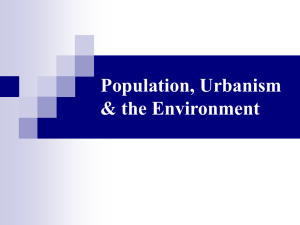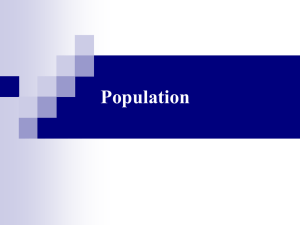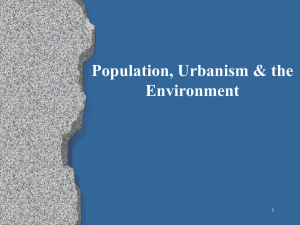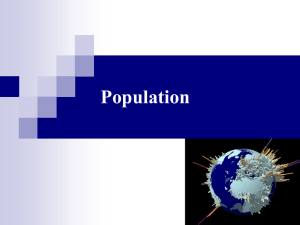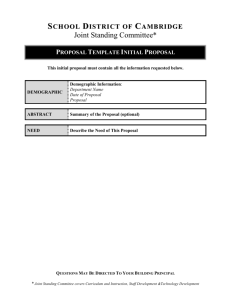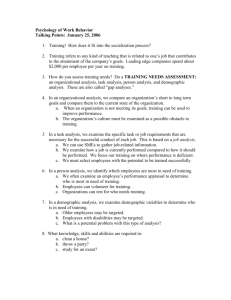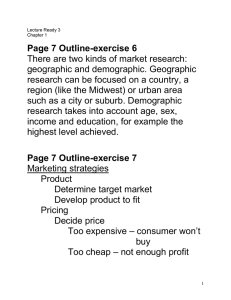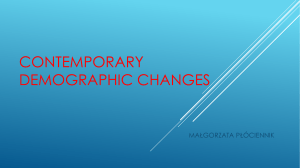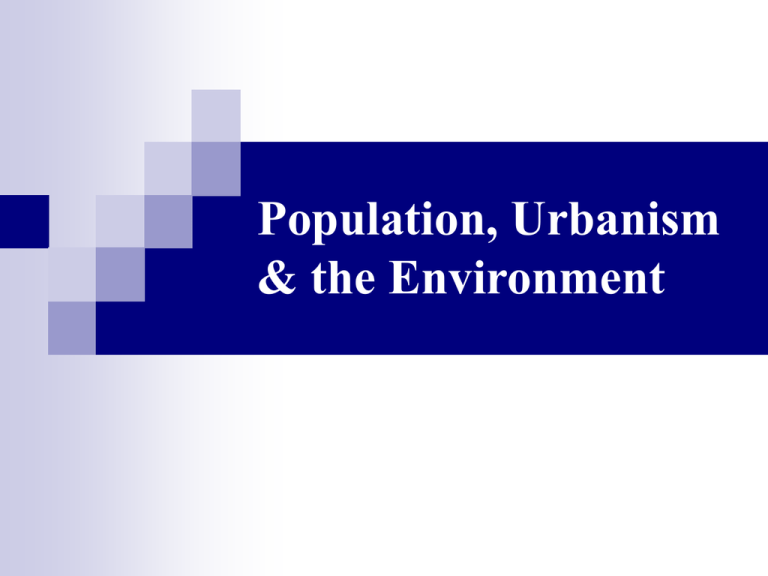
Population, Urbanism
& the Environment
World population
Currently
6.5
Billion
Most of human history the
population of the entire earth was
500 Million (1/2 billion)
Demography
The
study of human population
Through
most of human history,
families had many children
because:
Children
were needed of the form
Birth control was not reliable
High death rates = many children
did not reach adulthood
Demographic terms
Fertility
Amount
of childbearing in a
population
Several measurements of this
Demographic terms
(cont.)
Crude
birth rate
Live births per 1,000 people each
year
High income nations e.g. U.S. =
lower than average crude birth rate
The lower the average income, the
higher the population increase
Demographic terms (Cont.)
Fecundity
rate
Maximum possible childbearing
Sex Ratio
Males for every 100 females
Zero Population growth (ZPG)
Two
people produce two people
Maintains population at a steady state
Malthusian theory
Food
increasing arithmetically
Pop. Increasing geometrically
Result : People reproducing
beyond what the planet can
support
Out-stripping
resources
Poisoning the planet
Demographic Transition Theory
Population
patterns reflect a
society’s level of technological
development

